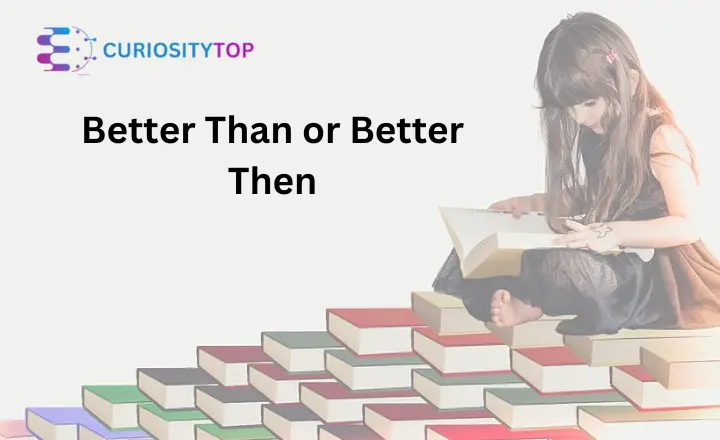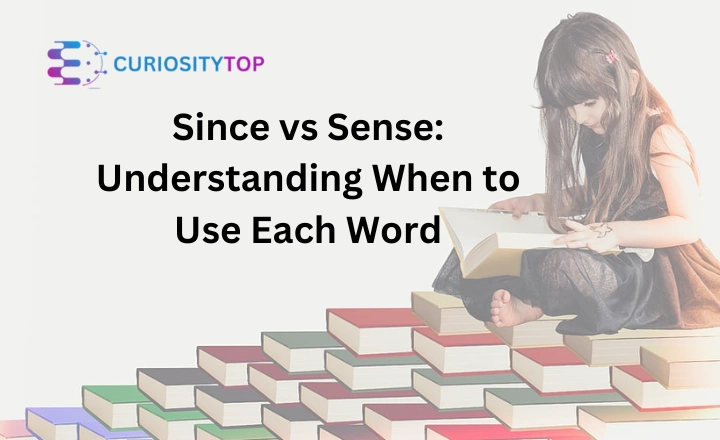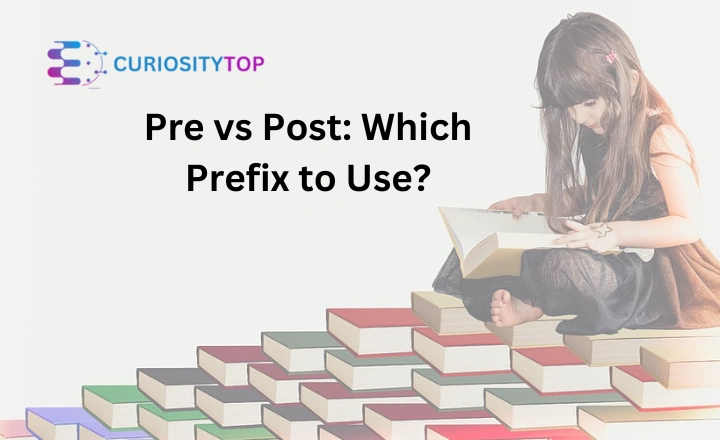Better Than or Better Then – Which Is Correct? (+Examples)
As a writer, I’ve faced my fair share of grammar puzzles. But few have caused as much confusion as the “Better Than or Better Then” dilemma. It’s a tiny difference that can trip up even seasoned wordsmiths. Today, I’m going to clear the air once and for all about this common mix-up of Better Than or Better Then.
You see, “better than” is the correct phrase when comparing. It’s the go-to choice when you want to say one thing outshines another. On the flip side, “better then” is a grammatical no-no. A mistake that pops up when people confuse “than” with “then” – a word that deals with time, not comparisons.
Understanding the Common Mix-Up: Then vs Than

The common mix-up between Better Than or Better Then can largely be attributed to their similar spelling and pronunciation, yet they serve different grammatical purposes. “Then” is primarily used concerning time as an adverb, while “than” introduces comparisons as a preposition or conjunction. Although these words may appear homophones, they are employed in distinctly different contexts.
The Significance of ‘e’ and ‘a’ in Grammar
The significance of the letters ‘e’ and ‘a’ in “then” and “than” can help immensely distinguish their respective grammatical functions. The letter ‘e’ in then denotes its association with events in time, while the letter ‘a’ in than signifies its role in making comparisons between two entities.
By keeping these associations in mind, one can proficiently differentiate between the two words and use them accurately in sentences.
Then and Than: More Than Just Homophones
“Then” can be utilized in various time-related scenarios, referencing a past, present, or successive event. “Than” is specifically used to introduce a comparative relationship between two subjects.
- Emma finished her homework, then she started watching TV.
- Jake can run faster than his younger brother.
In the first example, “then” indicates the sequence of events, while in the second example, “than” establishes a comparison between Jake and his younger brother’s running abilities.
| Word | Function | Example |
| Then | Indicates time or sequence | Susan finished her coffee, then left the cafe. |
| Than | Introduces comparisons | Adam is taller than his sister. |
The grammatical differences between Better Than or Better Then improve your language proficiency and help you avoid common misspellings and pronunciation nuances. To further enhance your English vocabulary, consider seeking educational grammar tips, learning about homophone distinctions, and exploring different aspects of language learning.
Breaking Down the Usage of ‘Then’

Then’ enhances narratives with temporal clarity, helping to create a sense of order and flow in language. It serves various purposes, such as indicating actions that occur in sequence, pointing to a prior moment in time, or identifying a response to an event.
As an adverb, ‘then’ demonstrates when something took place or will occur, functioning as a pivotal point for ordering events or illustrating cause and effect.
Pinpointing ‘Then’ in Time-Related Contexts
In time-related contexts, ‘then’ describes a previous moment or period in time. This can involve speaking about the past, present, or future. Some examples include:
- Back then, they didn’t have cell phones.
- If you finish your work, then you can watch TV.
- I’ll be there at noon, and then we can have lunch.
Using ‘then’ in these scenarios allows for a clearer understanding of when specific actions or events take place, resulting in more effective communication.
‘Then’ in Sequences and Outcomes
‘Then’ is also invaluable for outlining the order of events in sequential narratives. It functions as a signal, highlighting what comes SUBSEQUENTLY, immediately after or some time following the initial action. For instance:
- First, preheat the oven to 350°F. Then, grease the baking pan.
- She woke up, brushed her teeth, and then made breakfast.
- We finished dinner and then went for a walk.
Then’ plays a crucial role in conditional statements, indicating the result or consequence of an event. Consider this example:
If my car doesn’t start, then I will be in trouble.
| Context | Usage Example |
| Time-Related | I’ll meet you at the park, and then we’ll grab ice cream. |
| Sequence | Wash your hands, then dry them with a towel. |
| Conditional Statement | If it rains, then the game will be canceled. |
The various applications of ‘then’ in different grammatical contexts can make a significant difference in effectively conveying time expressions in English. By practicing adverb usage, sequential actions, sequential order, and conditional statements, you can improve your writing and communication skills, ultimately taking your language proficiency to new heights.
Making Comparisons with ‘Than’

Than” is indispensable in English grammar, used exclusively within comparative structures to illustrate differences between two subjects. It plays a critical role in phrases with comparative adjectives like “older than,” “further than,” and “healthier than,” clearly demonstrating unequal comparisons. Without “than,” there is no direct way to achieve the same meaning in a sentence.
The use of “than” to improve your understanding of Grammar for comparison and ensure language correctness:
- Comparative Adjectives: “A is stronger than B” or “She is smarter than him.”
- Comparative Adverbs: “He can run faster than his friend.”
- Inequalities with Noun Phrases: “There are more active users than inactive ones.”
- Comparisons with ‘as…as’ Structure: “I’m not as tall as my sister.”
Apart from these standard uses of “than,” some idiomatic expressions feature this word in comparative contexts. Examples include:
- Better safe than sorry
- Actions speak louder than words
- It’s easier said than done
In essence, “than” is a tool that enables speakers and writers to draw comparisons with precision, allowing for clear communication. By mastering “than” in comparative sentences, you can avoid confusion and improve your grasp of English Grammar. Dedicate some time to practicing sentence structures that involve unequal comparisons, and you’ll ultimately achieve language correctness.
The Function and Flexibility of ‘Then’
In the intricacies of the English language, the word ‘then’ serves a range of purposes, primarily in adverbial functions, clarifying temporal sequences, providing chronological order, and enhancing narrative flow. This versatility results in many exceptional usage cases that showcase English language flexibility.
‘Then’ as an Adverb: Adding Time Clarity
As an adverb, ‘then’ is adept at marking the passage of time and imparting temporal precision within sentences. When applied as an adverb, ‘then’ can replace phrases like “at that time,” indicate subsequent or future actions, or transition from one event to another, enriching the language with chronological coherence.
Examples:
- I lived in New York, but then I moved to California.
- Finish your homework, and then you can play video games.
Take note of the following usages of ‘then’ as an adverb, providing temporal clarity in various contexts:
- Indicating a past event: We were younger then.
- Signaling a subsequent action: She left the room and then started crying.
- Expressing a cause and effect relationship: If the weather remains clear, then the game will ensue as planned.
‘Then’ as an Adjective and Noun: Specific Instances
Beyond its typical use as an adverb, ‘then’ can occasionally assume the grammatical roles of an adjective and a noun, primarily to denote past identity or chronology. Although these forms might be less common, they illustrate the flexibility inherent in English.
When ‘then’ functions as an adjective, it typically elucidates a former state or role, often employed retrospectively. In its noun form, ‘then’ encapsulates the concept of ‘that time,’ marking a specific past occasion referenced in discourse.
- As an adjective: The then president was facing a difficult decision.
- As a noun: From then on, they remained best friends.
As demonstrated, the word ‘then’ offers various grammatical possibilities, enabling it to enrich the text with temporal and sequence-related clarity. Its role in English displays exceptional flexibility, allowing writers to convey their thoughts with greater precision, coherence, and narrative flow.
Exploring ‘Than’ in Comparatives and Contrasts

English Grammar provides fascinating tools for describing relationships, including than, an essential word for constructing comparative sentences. This unique language tool facilitates meaningful differentiation, associating predominantly with comparative and superlative adjectives. ‘Than’ empowers language enthusiasts to explore contrasting elements with precision, something other single words in English grammar struggle to match.
The Uniqueness of ‘Than’ in Comparison Structures
No other word compares to than when it comes to contrasting items within a sentence. To appreciate the word’s unrivaled proficiency, let’s consider some common comparative adjectives:
| Adjective | Example |
| Older | Michelle is older than Susan. |
| Stronger | Robert has a stronger grip than Leo. |
| Wiser | Experience has made her wiser than before. |
With that, intuitive comparisons between entities become easier. The word’s unparalleled accuracy highlights the nuanced relationships among various subjects, making it an indispensable English language component.
Common Expressions and Idioms Featuring ‘Than’
Than frequently uses idiomatic expressions and proverbial language, entrenching itself within the vivid tapestry of English communication. Through reinforcing comparative sentiments, common expressions that use ‘than’ highlight the word’s powerful application:
- Better late than never.
- The pen is mightier than the sword.
- Actions speak louder than words.
These idiomatic phrases bring charm and wisdom to discourses, underlining the pivotal role of than within comparison-centric communication. Mastery of this linguistic tool, particularly in conjunction with other grammatical construction comparisons – enables more insightful and engaging language use.
Common Phrases and Their Correct Forms
Both “Better Than or Better Then” are present in various familiar phrases, often leading to confusion. “Now and then” signifies occasional occurrences, whereas “better you than me” reflects a comparative preference. Knowing the correct use of these words within set phrases is crucial for avoiding language mistakes.
Navigating Through Confusing English Phrases
English expressions can be made more understandable by examining common phrases that contain the frequently confused words “then” and “than.” This will help you better grasp their correct usage and prevent communication errors.
Phrases with ‘Then’:
- Now and then
- By then
- Then and there
Phrases with ‘Than’:
- Better late than never
- More than meets the eye
- Easier said than done
Look at a few examples for a better understanding:
- Now and then, she visits her hometown to see her parents.
In this sentence, “now and then” implies something occasionally or intermittently. “now and then” refers to a frequency in time, not a comparison.
- Jason is better late than never, so we can expect him to show up after the meeting starts.
This proverb, “better late than never,” features “than” to create a comparison between being late and not showing up at all. The phrase suggests it’s preferable to be late than not to participate.
A clear understanding of the correct phrase usage can help you avoid errors and convey your thoughts more effectively. This will ultimately help clarify language confusion and develop a strong grasp of English expressions.
Memory Tricks to Avoid Then-Than Confusion
The difference between “then” and “than” can be challenging, especially for those learning English as a second language. Thankfully, you can use some simple mnemonic devices and grammar tips to help avoid common errors and improve your language proficiency.
This vital linguistic cue can make all the difference: The ‘e’ in “then” can stand for ‘event’ in time, while the ‘a’ in “than” can be associated with ‘comparison’. With this helpful memory trick in mind, you’ll be able to quickly identify the appropriate word for various grammatical contexts and apply the correct grammar rules with confidence.
Practicing language learning aids, such as flashcards and quizzes, can further reinforce your ability to recognize and use these common homophones accurately. By investing time in honing your language skills and consistently implementing memory tricks like these, you greatly reduce the risk of making common mistakes and elevate your English language proficiency.
Here are some additional tips to help you remember the difference:
- Sequence Check: If you’re describing a sequence of events, you need “then.” For example, “We ate dinner, then we watched a movie.”
- Comparison Test: If comparing two things, you need “than”. Example: “I’d rather eat pizza than salad.”
- Time vs. Comparison: “Then” is about time, “than” is about comparison. Examples:
- “Back then, we didn’t have smartphones.” (time)
- “Smartphones are more advanced than older cell phones.” (comparison)
- Substitution Method: Try replacing “than” with “compared to.” If it makes sense, you’re using it correctly. Example: “She’s taller than me.” -> “She’s taller compared to me.”
- “If/Then” Connection: Remember that “then” often follows “if” in conditional statements. Example: “If it rains, then we’ll stay inside.”
By regularly practicing these memory tricks and tips, you’ll find that distinguishing between “then” and “than” becomes second nature. Remember, mastering these nuances of the English language not only improves your writing but also enhances your overall communication skills.
Conclusion
The difference between Better Than or Better Then is a key step in refining your English skills. “Than” is your go-to for comparisons, while “then” deals with time and sequences. Keeping these distinctions in mind and practicing regularly will boost your writing clarity and confidence. Now, armed with this knowledge, go forth and compare with confidence!
FAQs
Which is correct better than or better then?
“Better than” is the correct phrase to use when making comparisons. “Better then” is grammatically incorrect. “Than” is used for comparisons, while “then” refers to time or sequence. Many people confuse these words due to their similar spelling and pronunciation, but they have distinct uses in English grammar.
What is an example of better than?
An example of “better than” in a sentence is: “The sequel was much better than the original movie.” This phrase commonly compares two or more things, indicating that one is superior. You might also say, “Her singing voice is better than mine,” or “This new laptop performs better than my old one.”
What is an example of than or then?
An example using “than”: “She runs faster than her brother.” Here, “than” is used for comparison. An example using “then”: “First, we’ll go to the store, then we’ll head to the park.” In this case, “then” indicates sequence. Another example: “If it rains, then we’ll stay inside.” Here, “then” shows the consequence.
How do you use better than in a sentence?
Place “better than” in a sentence between the two things you’re comparing. For example: “Fresh vegetables taste better than canned ones.” You can also use it with verbs: “He plays guitar better than I do.” In questions, it might appear at the end: “What could be better than a day at the beach?”







